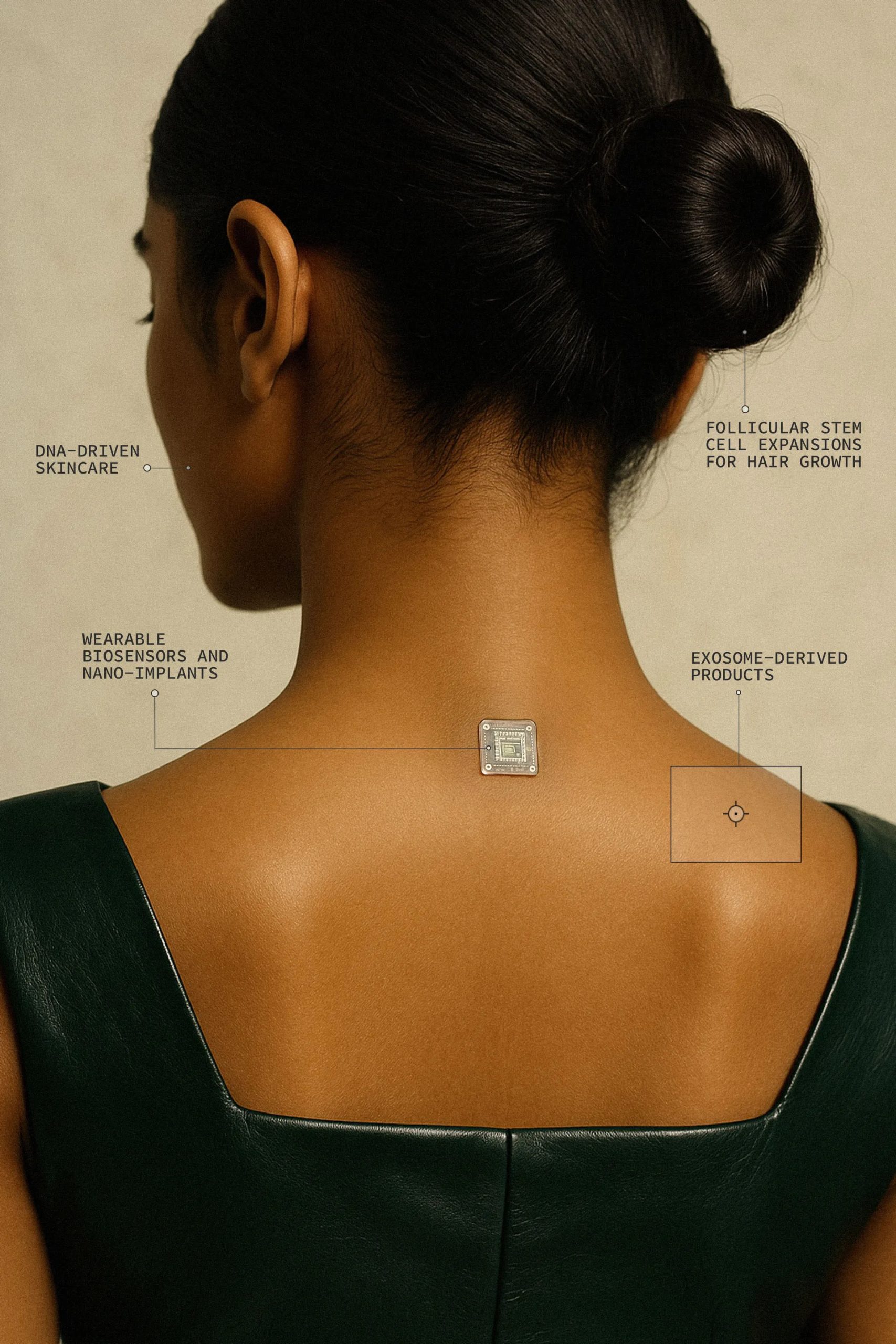In this cutting-edge era of technology, science has entered an era of fiction where DNA is being coded. Skincare nanobots are a technology that uses microscopic robots or nano-implements to monitor the skin in real-time. This can then release active ingredients to address skin changes such as hydration, inflammation, UV damage, and aging.
Skin aging requires the removal of waste products. Diamondoid-based medical nanobots can repair active tissues. Devices like L’Oréal’s “Cell Bioprint” tap skin proteins, analyze proteomic patterns, and recommend personalized ingredients.
According to Vogue Business, brands like Skin + Me & Skin Trust Club are using consumer DNA to create a variety of skin care products. They can monitor skin conditions and hormone levels in real-time to provide the right medication. Again, skin care can recommend collagen boosting serums and fragrance-free products based on genetic characteristics. The survey said that 68% of consumers would use skin care products based on proteomic data at the gene level. Using products that identify genetic predispositions improves skin health. This approach reduces side effects and optimizes treatment effectiveness. Electro responsive nanoparticles can be implanted anywhere in the body to precisely release the drug when needed. The implant even tracks the release rate and sends that data back digitally, similar to an IV drip with Bluetooth. So, it can be adjusted remotely.
Nano-formulation is possible using biotech (silk peptides, polyphenols). This method is environmentally friendly, aiming to reduce dependence on petrochemicals. Haut.AI & SkinGPT helps users visualize the future skin appearance based on product usage and further enhances their experience.
The global market for DNA-based skin care is growing rapidly due to its high efficacy. As a result, its value is expected to reach $7.61 billion by 2024 and grow at a CAGR of 6.8% until 2030. DNA-based and nanobot technologies are playing a significant role in long-term skin solutions. This innovation promises to make skin care more effective, preventive, and sustainable.
